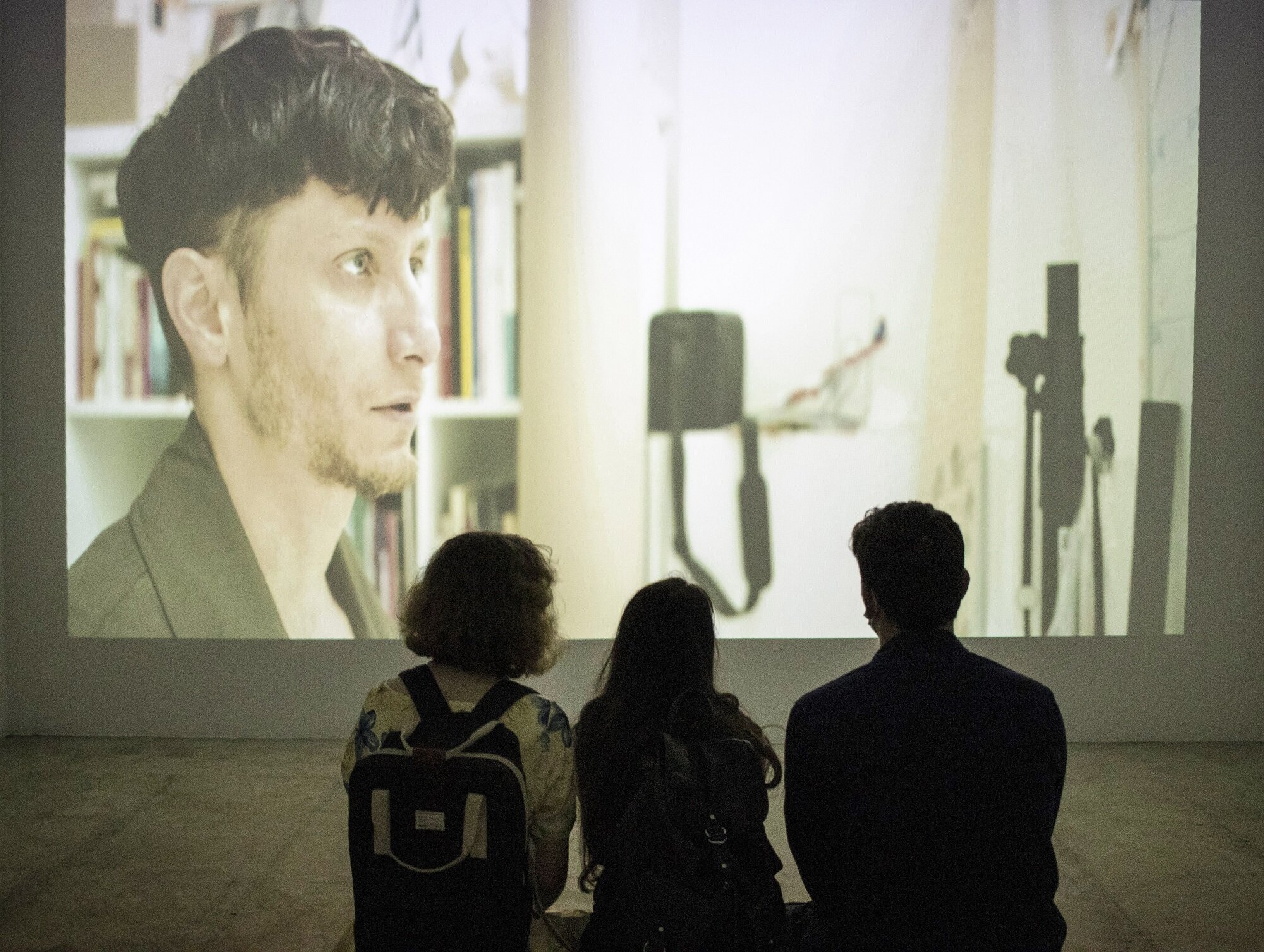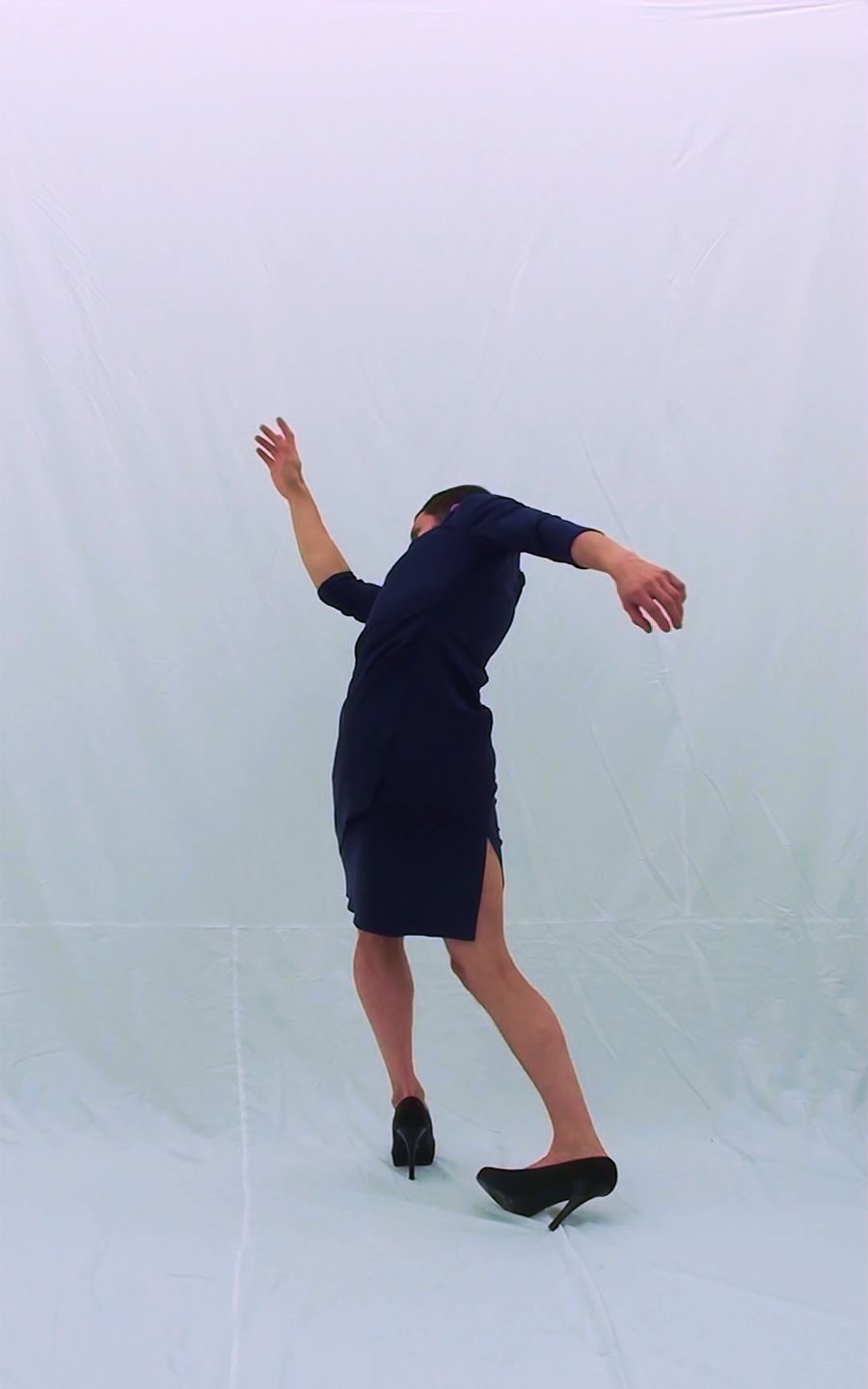”Furtuna” de Alex Mirutziu, selectat în cadrul Competiției Naționale de Scurtmetraj BIEFF 2024
Proiecție: 27 septembrie 2024, la Cinemateca Eforie, București
Este al patrulea an în care experimentele cinematografice autohtone cuceresc marile ecrane din București, în cadrul Competiției Naționale de Scurtmetraj a BIEFF. Unsprezece filme aparte, ale unor cineaști și artiști vizuali care provoacă ecranul, concurează anul acesta pentru Premiul Competiției Naționale de Scurtmetraj.
„Ceva se întâmplă cu cinemaul românesc. Nu cu mult timp în urmă, o competiție națională a BIEFF ar fi fost greu de crezut; o ediție ca aceasta, cu 11 scurtmetraje în Competiția Națională și cinci lungmetraje românești prezentate în diferite categorii, ar fi fost de neînchipuit.
Festivalul a ajuns deja la a patra ediție a Competiției Naționale; 2021, anul (pandemic) de început, pare să fi fost o cu totul altă epocă. De atunci și până acum, BIEFF face ceva într-adevăr neobișnuit pentru cultura română – privește cu mare atenție video eseuri, filme coregrafice, experimente în animație, suite foto, filme jurnal, artă video, found footage, nonficțiune și non-narațiune și le înțelege, cercetează și, mai ales, sărbătorește ca fiind cinema. Anul acesta, mai mult ca oricând, cinemaul Competiției Naționale ia tot atâtea forme câte filme“, spune Călin Boto, curatorul Competiției Naționale BIEFF 2024.
Selecționate din peste 85 de filme românești înscrise la această ediție, cele 11 scurtmetraje autohtone din competiție vor putea fi urmărite în cadrul a două programe distincte, ambele programate la Cinemateca Eforie, în datele de 27 și 28 septembrie.
În primul program competițional, publicul va putea vedea scurtmetrajul documentar ”Despre imposibilitatea unui omagiu”, în regia Xandrei Popescu, care a avut premiera mondială în cadrul Festivalului de Film de la Locarno. Xandra Popescu se întoarce la BIEFF cu portretul lui Ion Tugearu, unul dintre cei mai mari dansatori și coregrafi români, denumit „prințul baletului românesc”, prim-solist al Operei Naționale care de aproape 60 de ani dansează, coregrafiază și formează artiști din zona baletului, dar și a dansului contemporan.
În ”Furtuna”, artistul Alex Mirutziu provoacă noțiunile de limbaj și reprezentare printr-un film sincron culturii contemporane a teaser-elor, reflectând asupra naturii tandre și maleabile a fizicului masculin. Un film care se află la granița dintre fenomenul contemporan al teaser-elor și moștenirea stilului vizual al Germaine Dulac, punând accent pe libertatea absolută în imagini și analogii. Ritmul său alert contrastează cu elemente de camp nesofisticat, interpretări exagerate și reflecții percutante asupra mortalității și singurătății. Scenele funcționează atât ca concluzie, cât și ca preludiu, prezentând secvente rapide și impactante, precum și flash-uri de text care surprind un stoicism brut, imersat în complexitatea renunțării la control. Am încercat să îmbin anxietatea cu tendințele impulsive, evocând un sentiment de demnitate care pare să emane din fiecare cadru. Obiectivul meu, la nivel teoretic, a fost să dizolv atmosfera densă prezentă în timpul creației, eliminând superficialitatea și constrângerile limbajului, îmbrățișând un sine mai liber, care ignoră normele societății și preocupările materiale. Textul și vocile din film reflectă o luptă pentru controlul asupra corpurilor și dorințelor, expresiile lor contamineza esența filmului. Această lucrare este profund legată de circumstanțele în care a fost creată, reflectând experiențele și identitatea mea personală. Explorează teme precum permeabilitatea, natura tandră și maleabilă a fizicului masculin, înclinația sa de a se abate de la plăcerile convenționale dictate de orgasm și satisfacția derivată din erodarea unor granițe specifice ale corpului.
În scurtmetrajul nonficțional ”Vakhtanguri”, Valeriu Adimei urmărește povestea unui cuplu queer din Tbilisi și încercarea lor de a găsi un loc căruia să îi spună acasă în Bruxelles.
”Lucky Girl Syndrome” surprinde un moment specific din viața autoarei Raya al Souliman, relocarea în altă țară și relația cu noul oraș, iar în ”Adio, încredere”, Mădălina Zaharia face o analiză a noțiunii de „încredere” descompusă în termeni vizuali și lingvistici.
În cel de-al doilea program competițional dedicat filmelor românești, spectatorii se reîntâlnesc cu Teona Galgoțiu, câștigătoarea de anul trecut a Premiului Gopo pentru cel mai bun scurtmetraj (“Vreau să sparg sera”), care revine la BIEFF cu cel mai nou scurtmetraj al său, ”Clare’s Decision Not to Get Up”, un protest împotriva nevoii de mișcare permanente.
În filmul lor coregrafic ”Repetiții pentru pace”, artiștii vizuali Anca Benera și Arnold Estefan ne introduc în viața performativ-cotidiană din Cincu, un sat din centrul Transilvaniei, unde o bază militară NATO coexistă cu peisajul pastoral și modul de viață arhaic. Inspirat din istoria rețelelor de internet dintr-un orășel din România, ”Surge of Transference” al lui Geo Barcan își imaginează sfârșitului capitalismului târziu și începutul unui viitor peer-to-peer offline, neguvernat de niciun software sau hardware. Cu ”A Dying Leaf Should Be Able to Carry the Weight of the World”, Thea Lazăr invită privitorul într-un tur al „Grădinii celor cinci continente” din Cluj-Napoca, acolo unde istoria neștiută a plantelor ne poate spune la fel de multe atât despre trecut, cât și despre viitor. În ”Asfalt”, filmat în format Super 8, Bogdan Georgian Alexandru documentează munca de o viață a unui fost asfaltator, așadar povestea drumurilor pe care le parcurgem zilnic, iar în ”Saint George” al cineastei Alle Dicu facem cunoștință cu trei tinere femei care, fascinate fiind de „peisajele” hazardului de pe suprafețe de marmură, se învață reciproc cum să privească.
Juriul care va evalua filmele incluse în competiția națională a BIEFF 2024 și va desemna câștigătorul premiului pentru cel mai bun scurtmetraj românesc va fi compus din Aleksandra Lawska, curatoare independentă de origine poloneză specializată în lucrul cu filmul de scurtmetraj și fostă colaboratoare a unor a unor festivaluri precum Short Waves Festival Poznan, Festival du nouveau cinéma de Montréal, Glasgow Short Film Festival, Lago Film Fest, Michel Rensen, programator de film și consultant de scenarii de origine olandeză, actualmente coordonator de program al festivalului Go Short Nijmegen și fost colaborator al unor festivaluri precum Cork International Film Festival, Leiden Shorts, Encounters Film Festival, și Radu Pervolovici, director al Fundației Culturale META, coordonator al Rezidenței internaționale de creație audiovizuală de la Slon, precum și al proiectului MagiC Carpets România, care se desfășoară sub forma unei rezidențe internaționale de creație experimentală audio-video.
Bilete disponibile pe eventbook.ro
”The Tempest” by Alex Mirutziu, selected in the National Short Film Competition of BIEFF 2024
Screening: September 27, 2024, at Eforie Cinematheque, Bucharest
This is the fourth year that Romanian experimental cinema has graced the big screens in Bucharest as part of the National Short Film Competition at BIEFF. Eleven unique films by filmmakers and visual artists who challenge the screen will compete this year for the National Short Film Competition Award.
"Something is happening with Romanian cinema. Not long ago, a national competition at BIEFF would have seemed hard to believe; an edition like this one, with 11 short films in the National Competition and five Romanian feature films presented in various categories, would have been unthinkable.
The festival has already reached its fourth edition of the National Competition; 2021, the (pandemic) year of its inception, seems to have been a different era altogether. Since then, BIEFF has been doing something really unusual for Romanian culture - it takes a close look at video essays, choreographic films, animation experiments, photo suites, film diaries, video art, found footage, nonfiction and nonnarration and understands, investigates and, above all, celebrates them as cinema. This year, more than ever, the cinema of the National Competition takes as many forms as there are films" says Călin Boto, curator of the BIEFF 2024 National Competition.
Selected from over 85 Romanian films submitted for this edition, the 11 short films in the competition will be screened in two distinct programs, both scheduled at Cinemateca Eforie on September 27 and 28.
In the first competitive program, the audience will see the documentary short film ”On the Impossibility of an Homage”, directed by Xandra Popescu, which premiered at the Locarno Film Festival. Xandra Popescu returns to BIEFF with a portrait of Ion Tugearu, one of Romania’s greatest dancers and choreographers, known as the "prince of Romanian ballet," who has been dancing, choreographing, and training ballet and contemporary dance artists for nearly 60 years.
In ”The Tempest”, artist Alex Mirutziu challenges notions of language and representation through a film synchronized with the contemporary culture of teasers, reflecting on the tender and malleable nature of the male body. A film straddling the contemporary teaser culture and the legacy of Germaine Dulac’s visual style, emphasizing absolute freedom in imagery and analogies. Its brisk pace contrasts with sloppy campness, overacting, and sharp reflections on mortality and solitude. Scenes serve as both conclusion and prelude, featuring quick, impactful visuals and text flashes that encapsulate a raw stoicism immersed in the complexities of relinquishing control. I aimed to blend anxiety with impulsive tendencies, evoking a sense of dignity that seems to seep from every pore. My theoretical objective was to dissolve the dense atmosphere prevalent during its creation, shedding the superficiality and constraints of language, and embracing a more liberated self that disregards societal norms and material pursuits. The text and voices in the film reflect a struggle for control over bodies and desires, their expressions permeating the film's essence. This work is deeply intertwined with the circumstances of its creation, a reflection of my experiences and identity. It explores themes of permeability, the tender and pliable nature of the male physique, its inclination to deviate from conventional pleasures dictated by orgasm, and the satisfaction derived from the erosion of specific bodily boundaries.
In the non-fiction short film ”Vakhtanguri” Valeriu Adimei follows the story of a queer couple from Tbilisi and their attempt to find a place they can call home in Brussels.
"Lucky Girl Syndrome" captures a specific moment in the life of author Raya al Souliman, her relocation to another country, and her relationship with the new city, while in "Bye, Bye Confidence”, Mădălina Zaharia analyzes the notion of "trust" broken down into visual and linguistic terms.
In the second competitive program dedicated to Romanian films, viewers will encounter Teona Galgoțiu, last year's winner of the Gopo Award for Best Short Film ("Vrea să sparg sera"), who returns to BIEFF with her latest short film, "Clare’s Decision Not to Get Up" a protest against the constant need for movement.
In their choreographic film "Rehearsals for Peace”, visual artists Anca Benera and Arnold Estefan introduce us to the performative-daily life in Cincu, a village in central Transylvania, where a NATO military base coexists with the pastoral landscape and archaic way of life. Inspired by the history of internet networks in a small Romanian town, Geo Barcan’s "Surge of Transference" imagines the end of late capitalism and the beginning of a future peer-to-peer offline, ungoverned by any software or hardware. With "A Dying Leaf Should Be Able to Carry the Weight of the World” Thea Lazăr invites the viewer on a tour of the "Garden of the Five Continents" in Cluj-Napoca, where the unknown history of plants can tell us as much about the past as about the future. In ”Asphalt”, filmed in Super 8, Bogdan Georgian Alexandru documents the lifelong work of a former road worker, thus telling the story of the roads we travel daily. In Alle Dicu’s "Saint George" we meet three young women who, fascinated by the "landscapes" of chance on marble surfaces, teach each other how to look.
The jury that will evaluate the films in the BIEFF 2024 National Competition and select the winner of the Best Romanian Short Film Award will consist of Aleksandra Lawska, a Polish independent curator specializing in short film and former collaborator with festivals such as Short Waves Festival Poznan, Festival du Nouveau Cinéma de Montréal, Glasgow Short Film Festival, Lago Film Fest; Michel Rensen, a Dutch film programmer and script consultant, currently the program coordinator of Go Short Nijmegen and a former collaborator with festivals like Cork International Film Festival, Leiden Shorts, Encounters Film Festival; and Radu Pervolovici, director of the META Cultural Foundation, coordinator of the Slon International Audiovisual Creation Residency, and the MagiC Carpets Romania project, which operates as an international experimental audio-visual creation residency.
Tickets available on eventbook.ro















